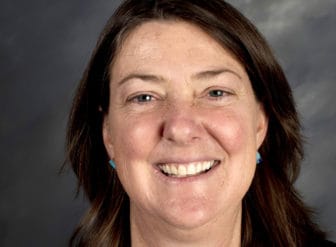COMMENTARY: There is a reason that New Mexico routinely battles it out with Mississippi over which state has the worst child welfare rankings: We do not have the social or political will to fully invest in our children.

Courtesy photo
Tara Ford
Make no mistake, no magic potion will create the change we need. If we want to make life better for children, we need to get serious about mobilizing the private, public and nonprofit sectors to improve the work they are already doing.
Changing the circumstances for children in our state is a long-haul effort that stagnates unless we continually and ambitiously strive to do more, and to do it better. As part of this effort, at minimum, we must hold our city, county and state leaders accountable for allocating and distributing more of our resources to directly benefit children.
To be sure, we already know how to improve the lives of children in New Mexico. It should come as no surprise that allocating resources to support vulnerable children and families works.
I am one example. Between 1986 and 1989 I was a single mother in college benefiting from significant governmental support, including WIC, subsidized child care, a Pell Grant and work-study funds. Higher education enabled me to have sufficient funds to provide for my daughter.
I also learned early that successfully raising children required more than just adequate income. My work-study job was at Peanut Butter & Jelly (PB&J), a community based therapeutic preschool that required parent involvement. As a classroom assistant and new parent, I learned about child development. Along the way, many people invested time and effort to help me succeed.
Ultimately, the government received a good return on investment. My oldest daughter went to graduate school and is now an early childhood educator. I was able to attend law school and start a nonprofit legal organization in New Mexico that not only employs many New Mexicans but also provides legal services to children and families.
Safety net services are essential, and they work.
We also have powerful examples of communities coming together for the well-being of children. The Native American Community Academy (NACA), a public charter school in Albuquerque, was created when over 100 community members came together around the question of how to improve education for Native American students. People envisioned a school that embraced the values of personal wellness, cultural identity and academic success.
So when students walk into NACA, they see pennants from first-rate colleges hanging on the walls, along with posters of Native American leaders, inspirational quotes and student art. Teachers, parents, tribal partners, community providers and students work tirelessly to embrace high academic standards while honoring and sustaining students’ identities, cultures and traditions.
By any measure, NACA has shown results: Its students attend our nation’s best post-secondary institutions. We need to champion more community institutions like NACA, institutions that both engage and serve our diverse children and their families.
We already know how to improve the state of the state for our children. It is time to mobilize the political will to make the right choices.
Tara Ford is a clinical supervising attorney and lecturer at Law with the Youth and Education Law Project (YELP), a project of the Mills Legal Clinic at Stanford Law School. She has focused her career on issues impacting children and their families, including special education, health care, mental health care and child welfare. Previously, Ford was the co-founder of Pegasus Legal Services for Children, a nonprofit law firm serving children and their families in New Mexico. In 2016, she authored “Pegasus Legal Services for Children: Taking Stock of a Rebellious Non-Profit Practice in New Mexico,” published by the Clinical Law Review. Agree with her opinion? Disagree? NMPolitics.net welcomes your views. Learn about submitting your own commentary here.